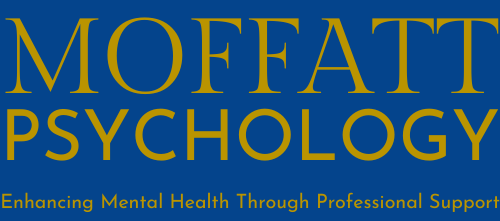Life has a way of throwing us curveballs when we least expect them. One moment, you might feel at the top of your game, and the next, you’re grappling with a growing sense of inconsistency, constant forgetfulness, and the nagging feeling that something isn’t quite right. For many adults, these perplexing experiences may be traced back to a common yet often overlooked source: ADHD (Attention Deficit Hyperactivity Disorder).
The journey from guessing to knowing—moving from uncertainty to a formal ADHD diagnosis—is both challenging and liberating. It involves recognising the signs, facing self-doubt, consulting experts, and ultimately, embracing a new understanding of oneself. In this post, we will explore this transformative process in depth.

Recognising the Signs: The First Hints
For many, the realisation that ADHD might be a factor begins with certain observable behaviours and experiences:
- Chronic Disorganisation:
- Papers everywhere, missed appointments, and the constant struggle to keep a tidy space can be more than mere quirks.
- Time Management Woes:
- Frequently losing track of time, struggling with deadlines, and an inability to estimate how long tasks will take are common pitfalls.
- Impulsivity and Restlessness:
- Making decisions on a whim, finding it hard to sit still, and a perpetual need for movement or action can be indicators.
- Hyperfocus:
- Ironically, individuals with ADHD can also experience moments of intense focus on specific tasks, often to the exclusion of all else.
- Emotional Dysregulation:
- Overwhelm, frequent mood swings, and heightened sensitivity to stress can be recurring issues.
These signs often accumulate silently over the years. Many people chalk them up to personality traits or lifestyle factors until they impede daily functioning to a significant degree.
The Inner Battle: Facing Self-Doubt
Admitting that you might have ADHD is not easy. The condition is often misunderstood and stigmatised, leading to feelings of self-doubt and inadequacy.
Common Doubts
- “Maybe I’m just lazy.”:
Despite efforts, those with ADHD often feel that their inability to complete tasks stems from laziness or lack of willpower. - “Everyone forgets things.”:
It’s common to downplay symptoms by comparing oneself to the general forgetfulness that all humans experience. - “I’m too old for this to start now.”:
Many believe ADHD is a childhood disorder, not realising it can persist into adulthood or go undiagnosed until later in life.
Overcoming the Stigma
Breaking free of these misconceptions involves:
- Educating oneself about ADHD and its real-world implications.
- Understanding that ADHD is a neurodevelopmental condition, not a character flaw.
- Realising that seeking help for ADHD is a sign of strength, not weakness.
Seeking Professional Guidance: The Diagnosis Process
The decision to pursue a formal diagnosis is a significant step. It often begins with a visit to a medical professional, such as a psychologist or psychiatrist.
Initial Consultation
During the initial consultation, a healthcare provider will:
- Review your behavioral and emotional symptoms.
- Assess your medical, educational, and psychological history.
- Rule out other potential conditions that may mimic ADHD symptoms.
Comprehensive Evaluation
A thorough evaluation involves multiple tools and methods:
- Standardised Questionnaires:
- Tools like the Conners’ Adult ADHD Rating Scales (CAARS) Self-Report Scale (ASRS) help quantify symptoms in a structured manner.
- Interviews:
- In-depth conversations covering various aspects of your life help paint a complete picture.
- Collaterals:
- Information from family members, partners, or close friends can provide additional context.
Receiving the Diagnosis
Receiving an ADHD diagnosis can be both a relief and a revelation. It provides a name for the challenges faced and opens doors to targeted intervention and support.
Embracing Treatment and Support: A Journey of Adaptation
Once diagnosed, the next step is to understand and accept the treatment options available:
Medication
Stimulant and non-stimulant medications are often prescribed:
- Stimulants like methylphenidate (Ritalin) and amphetamine (Adderall) increase levels of dopamine and norepinephrine in the brain, enhancing focus and attention.
- Non-Stimulants such as atomoxetine (Strattera) can be effective, with fewer side effects for some individuals.
Behavioural Therapy
Cognitive Behavioural Therapy (CBT) is a common therapeutic approach:
- Helps develop coping strategies.
- Addresses negative thought patterns.
- Improves time management and organizational skills.
Lifestyle Adjustments
Adopting ADHD-friendly habits can significantly improve daily functioning:
- Routine and Structure: Establishing a daily schedule and consistent habits can help manage symptoms.
- Exercise: Physical activity can enhance focus and reduce impulsivity.
- Healthy Diet: Avoiding processed foods and incorporating a balanced diet can improve overall well-being.
Support Systems
Joining support groups or communities can be immensely valuable:
- Provides a network of individuals who understand your struggles.
- Offers practical advice and shared experiences.
- Encourages a sense of belonging and reduces feelings of isolation.
Acceptance and Moving Forward
Coming to terms with an ADHD diagnosis as an adult involves emotional and mental adjustments:
- Self-Compassion: Understand that ADHD is a part of you, but it does not define you. Be kind to yourself in moments of struggle.
- Mindfulness Practices: Techniques like meditation and mindfulness can help manage emotional dysregulation and improve focus.
- Celebrating Strengths: Recognise and celebrate the unique strengths that come with ADHD, such as creativity, problem-solving abilities, and the capacity for hyperfocus.
Breaking the Silence: Advocacy and Awareness
One of the most powerful ways to navigate life post-diagnosis is to contribute to ADHD advocacy and awareness:
- Open Conversations: Sharing your story can demystify ADHD and help others who are undiagnosed or struggling.
- Community Involvement: Participating in or supporting ADHD-focused organisations can drive forward research and legislation.
- Education: Promoting accurate, evidence-based information helps dispel myths and reduce stigma.
Conclusion
The journey from guessing to knowing that you have ADHD as an adult is both a challenge and a revelation. It is a testament to the resilience of the human spirit and the quest for self-understanding. It involves navigating the maze of symptoms, overcoming self-doubt, seeking professional guidance, and embracing an informed approach to treatment.
Ultimately, an ADHD diagnosis can transform one’s sense of self from a series of chaotic experiences into a coherent narrative that offers clarity and empowerment. Remember, the path to understanding oneself is a lifelong journey, but with diagnosis and acceptance, it becomes a journey marked by a newfound sense of purpose and direction.
By seeking knowledge, embracing support, and advocating for awareness, individuals with ADHD not only enhance their own lives but also contribute to a world that better understands and accommodates the diverse ways in which we all think, feel, and thrive.
At Moffatt Psychology, we understand the multifaceted journey involved in receiving an adult ADHD diagnosis. We are dedicated to providing personalised support every step of the way. From initial assessment to tailored therapeutic interventions, we aim to empower our clients with the knowledge and tools necessary to navigate their ADHD. Discover a supportive environment where you can transform the challenges posed by ADHD into opportunities for personal growth and success. Your journey from guessing to knowing can start here, with the expert guidance and unwavering support you deserve.


